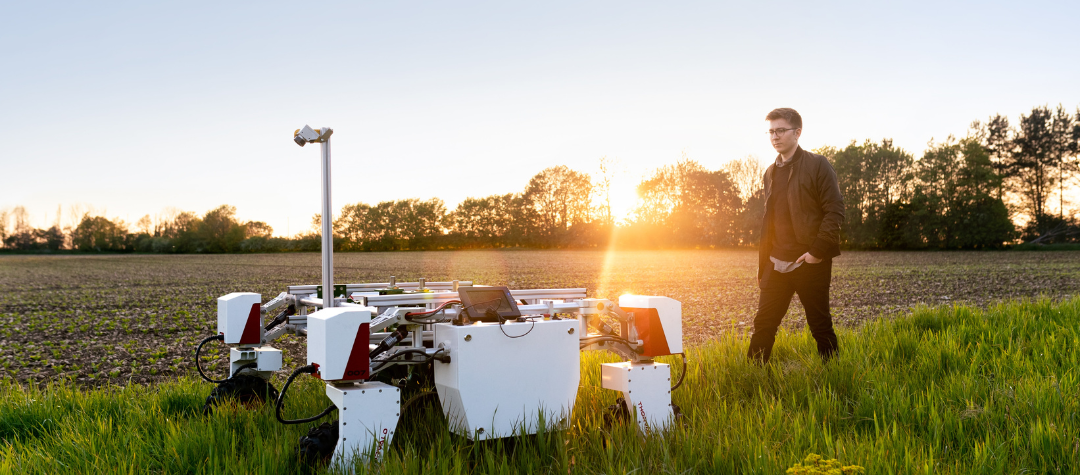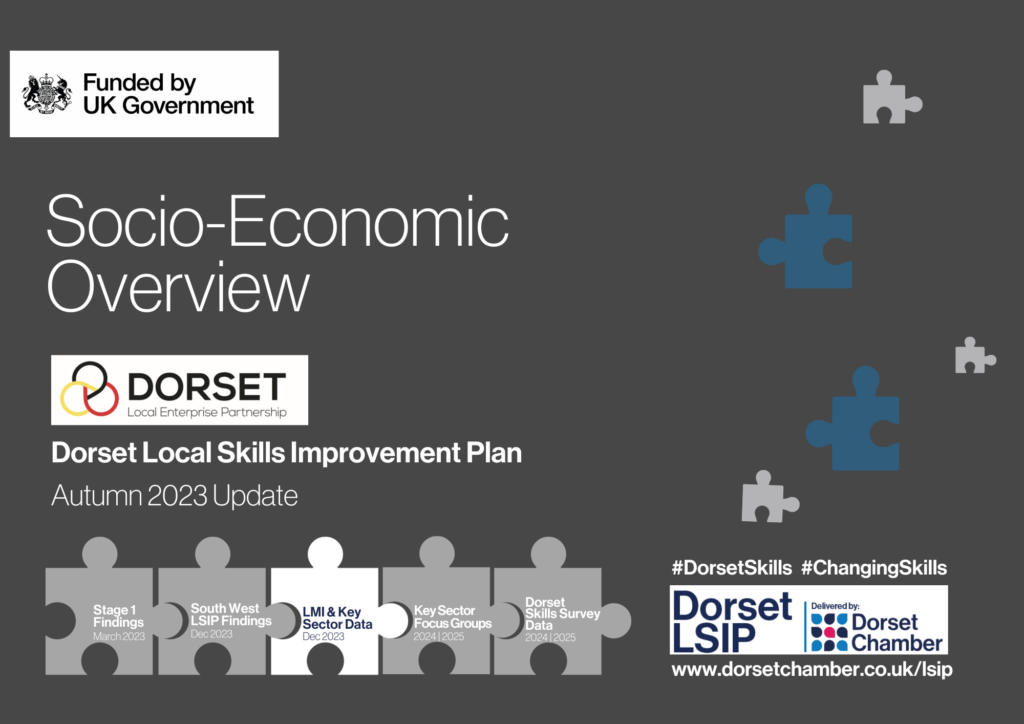

Funded by:

Findings, Insight Development and Data
Local Skill Improvement Plans (LSIP) are part of the government’s plans to put employers at the heart of the skills system. The LSIP articulates employers’ skills requirements and the priority changes needed to make technical education and skills provision more responsive to the fast developing needs of employers and the local economy.
The priorities were developed through robust evidence and by bringing together employers and providers to understand skills needs and provision. The LSIP was approved by Government in Summer 2023. You can view the Dorset LSIP here. The 3-year plan will be reviewed annually to ensure it continues to reflect the priority skills needs of Dorset.
Five sectors were identified as priorities by analysing robust evidence and bringing together employers and providers to understand local skills needs and provision. The LSIP retains an understanding of the local labour market, responds to its cross-cutting skills needs, and net zero planning.
Latest reports
The LSIP supports the development of an evidence base for understanding local skills needs which include interviews and focus groups with employers, supported by analysis of labour market needs, policy and skills provision.
LSIP will continue to release new data and analysis so please sign up for updates and get in touch with any comments.
Agriculture and Agritech
Dorset’s Agri-Tech sector is currently worth £108m and employs around 700 people. Dorset is aiming to improve the productivity of its land-based sectors and contribute to better food security for the UK. With over 200 SMEs, 77% of Dorset land is farmed.
Agritech is any technology on the farm or that crosses the threshold of the farm, for use in agriculture, horticulture, or aquaculture which increases productivity and sustainability.
Construction
Identified by Dorset Council as a sector with potential to provide significant growth. BCP Council is focussed on unlocking the zero carbon dividend with new environmental technologies.
Digital Tech and Creative
The creative and digital business activity in Dorset has seen active companies tripling over the past decade, reaching close to 9,200 in 2022 and turning over £1.7 billion, contributing £972 million to the local economy.
Health and Social Care
In Dorset, the healthcare sector demand has grown fast over the past years and is predicted to expand further in the future, offering a great variety of career opportunities. The sector employs 49,000 people (15% of the workforce) contributing £1.9 billion (11%) to the overall Dorset economy and has grown 54% in economic outputs over the past decade.
Net Zero
The Dorset LSIP will consider the skills, capabilities and expertise required in relation to jobs that directly contribute to or indirectly support Net Zero targets, adaptation to Climate Change or meet other environmental goals. The UK is seeking Net Zero by 2050. The latest government plan can be viewed here.


























